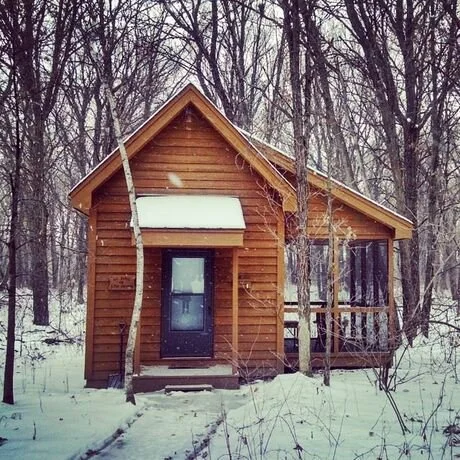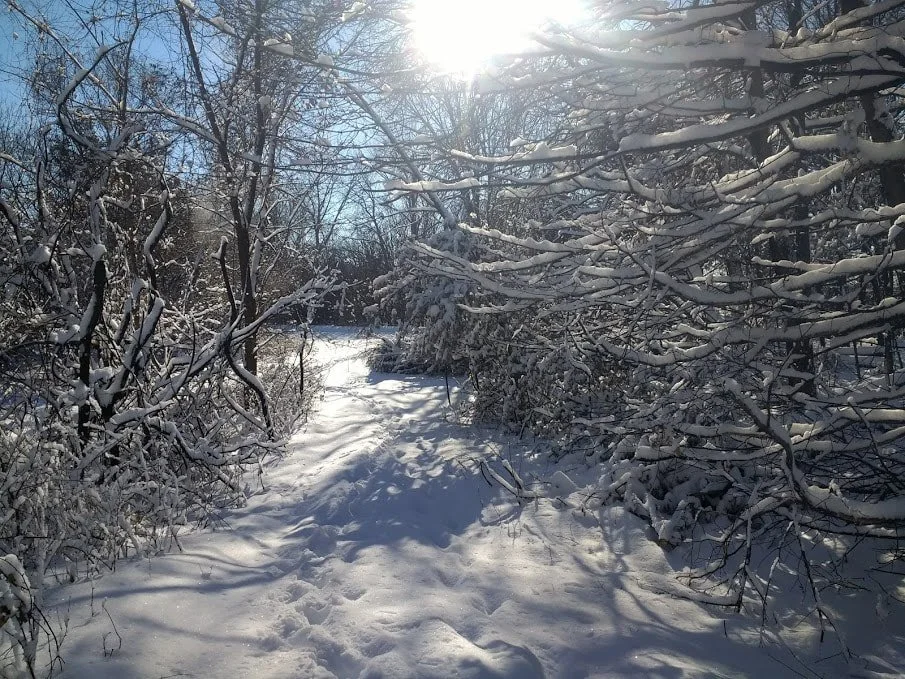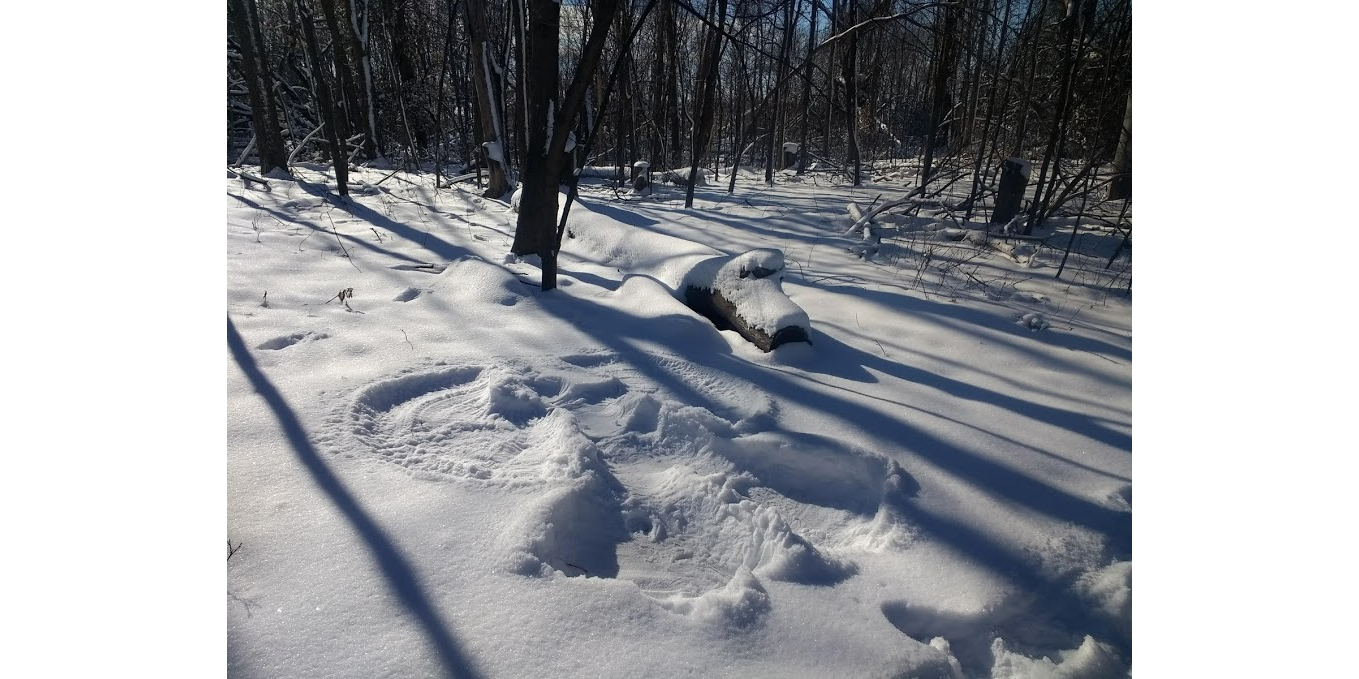Silent Retreat 101
Silence. Solitude. Stillness.
To some, these elements sound like a dream come true; to others, a nightmare.
For the last four years, I've been treating myself to a solo silent retreat in a small hermitage cabin at a retreat center to take time for deep rest, rejuvenation, reflection, and meditation, and prayer. I've found this time to be essential to finding mental and emotional clarity and discernment amidst my otherwise noisy, fast paced, distracted life. While I have a rhythm of self care and spiritual practice at home, there is something so different about being away from my house, from people, and from technology. Going on retreats keeps me honest with myself and rekindles my relationship with my Higher Power.
I've had so many people ask me, "How do you do it? I would go crazy all alone by myself for that long! What do you do with all that time?" Well, nothing really. And, a lot. So for those of you who are considering a personal retreat, but have some anxieties around it, this list of tips and tricks is for you.
Tip #1: Practice
While everyone can benefit from solo retreats, they aren't for everyone, at least not right away. It's the kind of thing you should work your way up to. Just like other types of exercise, you need to start small and increase your reps. If you try to just jump in and bench press 300 pounds without any preparation, you're going to injure yourself. It's the same with just jumping into a 3 day retreat without already having a toolkit of spiritual practices under your belt. A good way to jumpstart your practice is to first participate in a facilitated retreat with a group of people. Even if it's a silent retreat, having other people around you doing the same things builds a feeling of support and community, and having a structured schedule that includes guided prayer/reflection/meditation activities is really helpful.
You can also work your way up to solo retreating by taking yourself out on "dates" to begin to practice enjoying your own company. This could look like going for a hike by yourself, taking yourself out to a movie or dinner, spending an afternoon at the local park or coffee shop, going ice skating, or any other thing you enjoy. The key is to stay off your phone. You wouldn't be on your phone the whole time with a date, so don't do it with yourself. Be present to yourself. The only guarantee in this life is that the person you're going to wake up with every morning for the rest of your life is you. So start befriending yourself--you're worth it!
Tip #2: Scheduling
Once you have decided you're ready to try a solo retreat, it's time to pick the time and place. I suggest reserving a "hermitage" cabin at a retreat center. These cabins are set up for solo retreaters and are designed in such a way that they promote stillness, silence, and solitude. The intentionality of the design and the seclusion of the cabin will help you settle into "retreat mode" quicker. For your first time, I suggest spending two nights away. I've found it is crucial to have one entire day away in order to really rest and slow the mind down. I've found that on the last morning, my mind is already thinking ahead to what I have to do when I get home and starts planning for the upcoming week. It's very difficult to be fully present unless you have a full day of freedom; a full day away from the check lists and responsibilities of everyday life.
Don't schedule to arrive home late at night and then have to go straight to work the next morning. It is nice to ease out of your retreat by giving yourself plenty of time when you get home to unpack, do laundry, go grocery shopping, etc so that your transition back to the daily grind isn't as shocking.
Tip #3: Packing
There can be a temptation to overpack, but the goal of retreat is simplicity. Bring the minimum amount of clothing needed, no make up, no jewelry- no one is watching you. Let the image-making rest.
Leave your novels (or other books with a story line) at home. Novels are a great escape, but the goal of retreat is to practice Presence, not distraction. There are some books that can help bring us into a stance of deep Contemplation, and these are great retreat companions-- scripture, poetry, or other spiritual writings can help our mind find a place of quiet and deeper understanding.
I also love to bring along some "spiritual toys" such as my finger labyrinth, a deck of wisdom/art/tarot cards to reflect on, a chime/singing bowl, mala meditation beads, some visual icons that hold special significance to me, a yoga mat, meditation cushion, journal, sketch pad and colored pencils.
Also bring along whatever items you need to get out into nature- hiking boots, sunscreen, hat, gloves, etc. The temperature was around 0 degrees on my last retreat, and there was a foot of freshly fallen snow. Since I was prepared with all my warmest winter gear, I was still able to spend an hour or more outside each day walking through the woods, making snow angels, and bird watching. Never underestimate the healing power of nature and exercise, even when it's freezing out!
Tip #4: Upon Arrival
Once you've checked into your cabin, take some time to set up your stuff, finding a proper place to keep each of your things. You'll want to keep your small space organized and neat throughout your stay, remembering that a cluttered space promotes a cluttered mind.
Reflect ahead of time what you're committing to as far as phone usage. I highly suggest turning your phone off and leaving it in your car so you aren't tempted to start checking your phone, sending unnecessary texts, or getting lost in the rabbit hole of the internet. If you're using your phone as a camera, set it on airplane mode so it's only functioning as a camera. If you absolutely need to be communicating with family each day, just check your phone at night right before going to bed. But if you can, tell your family/friends that you'll be unavailable until you return home. This removes the distraction of needing to be constantly available and distracted. In today's world, it is a radical and incredible challenge to disconnect from technology, but the stillness of mind that results from this move is so worth it. It creates space for insights to arise and allows the mind/heart to start connecting the "dots" of our life.
So you're here. Now what?? I've found that one of the best ways to ease into a weekend of silence and solitude is by pulling out my journal and doing a "mind dump." This is just a stream-of-consciousness free write, where I put down on paper all the things on my mind that I'm worried about. This helps me note that there is a lot of stress that is truly hard to set aside, but if I acknowledge it in this concrete way, it helps me feel secure that I can set these things aside and they'll still be waiting for me when I return home. But for the next 48 hours, there is nothing that needs to be done or accomplished. I can truly let them go, and Be Here Now. In this mind dump writing exercise, it's nice to also set some intentions for the retreat, and I like to address all of this as a letter to my Higher Power. In this way, I'm establishing the conversation and relationship with God, and is a wonderful reminder that I'm actually not alone on this retreat-- I'm supported and loved by this ultimate Friend. This makes the solitude feel like a refuge instead of a prison.
Tip #5: "Goals" of Presence and Letting Go
In our culture, there is such pressure to do, to perform, to accomplish. Retreat is a time to let all of that go and practice a stance of Being. To just be is a revolutionary act, and a difficult one. On retreat, we leave our check lists behind and attempt to tune into our intuition, and to follow this instead of following distraction. Even without technology, our minds find a way to distract, to spiral off into worries or fantasies about the future, or into replays or regrets from the past. Our practice is to notice this, and keep bringing the mind back to what is real right here and now. What are you seeing, touching, hearing? As you eat, what textures and tastes are present? Can I practice gratitude for all of these things in the moment as I experience them? Can I let go of my need to accomplish something with this time? Can I let go of my self image and personality and listen to the deeper, higher Self stirring within?
From an Enneagram perspective, each of the types has a particular way of staying attached to our False Self (our habits of personality). Author and teacher Christopher Heuertz says that each of the Enneagram "Centers" has a particular need for either Stillness, Solitude, or Silence. When Body Center types (8,9,1) are forced to slow down and be still, their anger is waiting for them right under the surface. These types are always on the go, and all the movement is a distraction from having to look at their anger. This is why retreat can be so uncomfortable if we haven't already practiced observing ourselves and detaching from our feelings and thoughts. But this is why the Stillness of retreat is also essential to seeing what is going on with us, facing it head on, and working through it. The only way out is through, as they say, and this takes courage and diligence. It is only in intentional Stillness that Body Center types will find the peaceful rest of Acceptance, and be able to connect with their innate goodness and innocence.
For types in the Heart Center (2,3,4) the key healing element of retreat is Solitude. Heart types are constantly creating their self image in relation to the feedback they get from other people. When these types of people find themselves alone, it can be difficult to know who they actually are, or to get in touch with their true feelings and desires. For Heart types, the underlying emotion waiting for them in solitude is shame, since they find their sense of worth through either helping others, impressing others, or distinguishing themselves as different from others. It is only in Solitude that these types can discover their True Selves, and find an inner validation and self approval, as well as the sustaining and unconditional love from the Source of Love.
Head Center types (5,6,7) are so constantly stimulated by the noise of mental chatter and incoming information, that the healing medicine they will find in retreat is Silence. Once the outside noise of internet searches, documentaries, podcasts, books and stimulating activities is shut down, Head types are confronted with their underlying feeling of fear and anxiety. But it is only in this Silence, free from grasping at solutions to an unanswerable puzzle, that Head types will discover that they are safe, already have enough and already are enough. They will find true freedom in the presence of a deep inner knowing.
As difficult emotions and thoughts arise during retreat, our goal is to remain present to them, to approach them with a sense of curiosity and compassion, to investigate, and finally, to let go. Activities that can help with this process are: meditation, focusing on breathing or body sensations, prayer, mantra, chanting/singing, journaling, writing letters to your Higher Power, drawing pictures, writing letters to your inner child, dancing, yoga, stretching, getting out into nature. Remember that no mind-state or emotion lasts forever, and this too shall pass.
Tip #6: Expect the Best and Remain Open
While I've tried to prepare you for the worst, you might be surprised to discover a lot of joy, relief, gratitude, insight, healing, and contentment waiting for you on retreat. The last retreat I went on, I added an extra day. The first whole day felt like a lot of "work." It was difficult, and there was a lot of emotional and intuitional content to sort through. Once I got through this, the next full day was a day of pure bliss. With nothing to do, nowhere to be, and no one watching, my inner child was free to roam, rest, and kick up a wild rumpus! I cheated on the Silence rule, and used my phone to play a downloaded dance playlist, and danced wildly for about 2 hours straight. I'm discovering that what I personally need for my healing is a relief from rules.
So go ahead, make your retreat your own. As far as my suggestions go, take what you like and leave the rest. If you bring your Higher Power into the process and remain willing and open to the possibilities, you are sure to be surprised in a beautiful way. I hope you can learn to savor the healing gifts of Stillness, Solitude, and Silence, in whatever way is meaningful and accessible to you. Happy retreating!!





